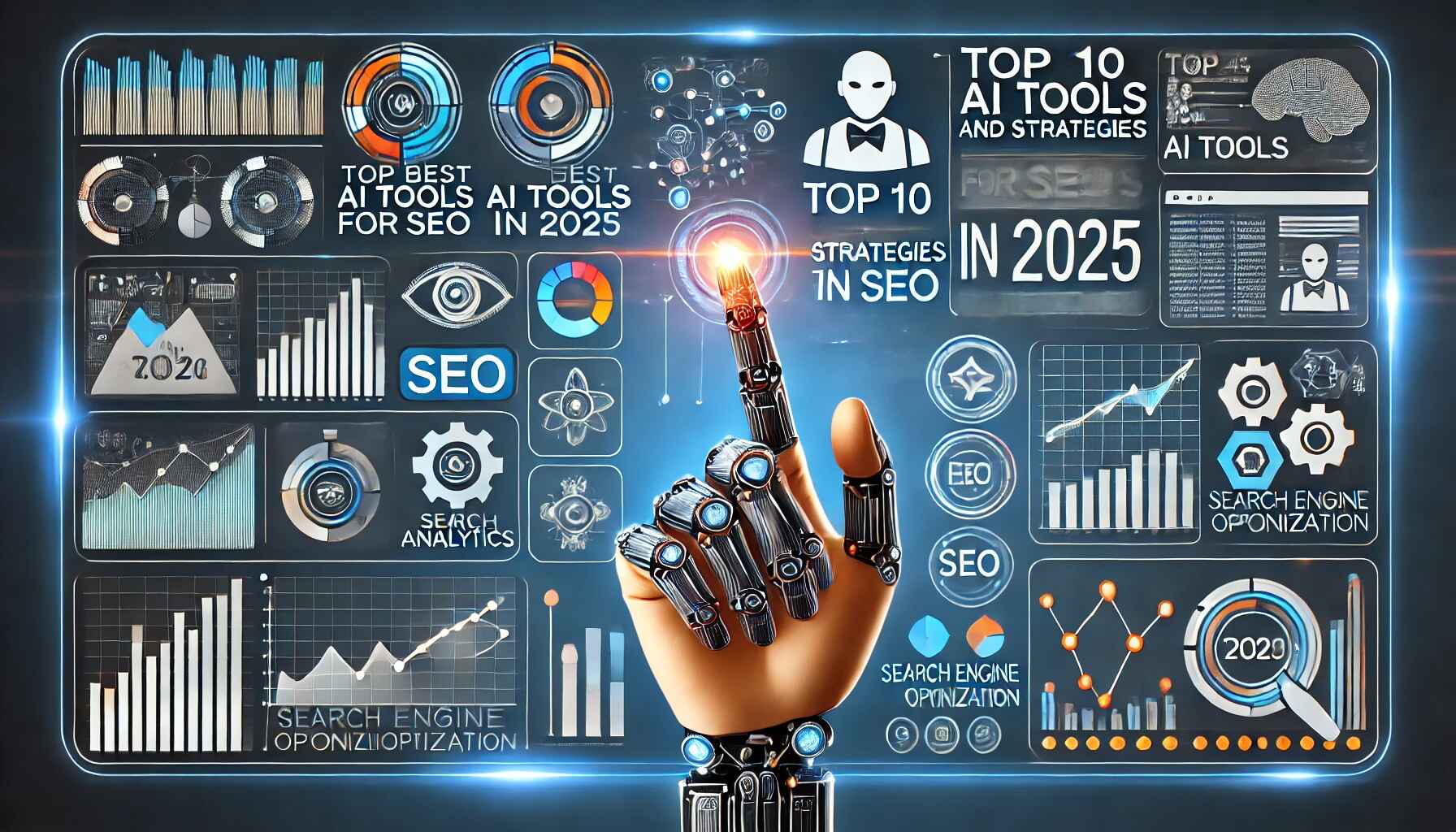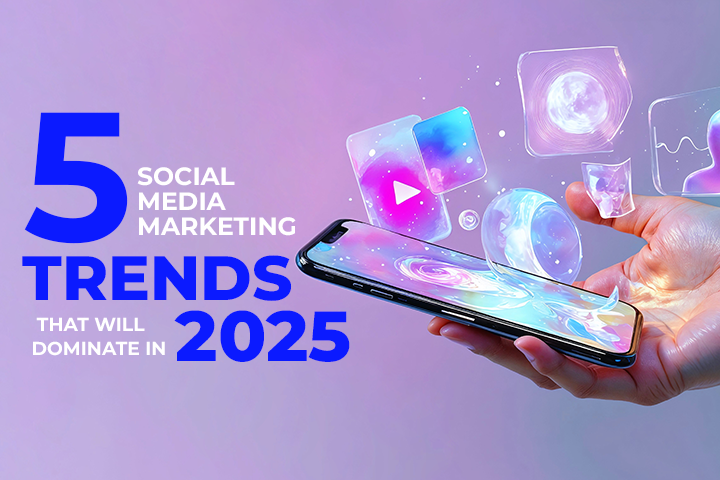In the ever-evolving world of digital marketing, staying ahead of the curve is crucial for businesses aiming to dominate search engine rankings. As we step into 2025, artificial intelligence (AI) is reshaping the SEO landscape, offering innovative tools and strategies to optimize websites, enhance user experiences, and drive organic traffic. By blending AI's analytical power with a human touch, businesses can craft SEO strategies that not only rank higher but also resonate deeply with their audiences. In this blog, we'll explore 10 effective SEO AI strategies that will elevate your search rankings in 2025, combining creativity, technical precision, and a sprinkle of human warmth to keep your content authentic and engaging.
Leverage AI-Powered Keyword Research for Hyper-Targeted Content
Keyword research remains the backbone of SEO, but AI tools take it to a whole new level. In 2025, advanced semantic analysis platforms analyze search intent, user behavior, and emerging trends to uncover hyper-targeted, long-tail keywords that traditional tools might miss. These tools dive into conversational queries, voice search patterns, and niche topics to identify opportunities for ranking.
How to Implement:
- Use AI-driven tools to identify low-competition keywords with high-intent.
- Analyze competitors' keyword gaps to find untapped opportunities.
- Create content clusters around primary keywords, linking related topics to build topical authority.
Optimize for Voice Search with Natural Language Processing (NLP)
With the rise of smart speakers and voice-activated devices, voice search is a dominant force in 2025. AI-powered NLP helps you optimize for conversational queries like "What's the best vegan restaurant near me?" or "How do I fix a leaky faucet?" These queries are longer, more conversational, and demand content that mirrors human speech.
How to Implement:
- Use AI tools to analyze common voice search phrases in your niche.
- Create FAQ pages or blog sections that directly answer conversational questions.
- Optimize for featured snippets by structuring content with clear, concise answers.
Use AI to Create Personalized User Experiences
Personalization is no longer a luxury—it's an expectation. AI algorithms in 2025 can analyze user data (like browsing history, location, and preferences) to deliver tailored content that keeps visitors engaged and reduces bounce rates. Search engines reward sites that provide exceptional user experiences, making personalization a key ranking factor.
How to Implement:
- Implement AI-driven recommendation engines to suggest relevant content or products.
- Use dynamic content that adapts based on user demographics or behavior.
- A/B test personalized landing pages to maximize conversions.
Harness AI for Content Creation and Optimization
AI content generators have come a long way, producing high-quality drafts that rival human writing. In 2025, these tools can create blog posts, product descriptions, and social media captions while optimizing for SEO metrics like readability, keyword density, and meta tags. However, human oversight is essential to ensure authenticity and emotional resonance.
How to Implement:
- Use AI tools to generate first drafts or outlines, then refine them with your brand's voice.
- Optimize meta titles, meta descriptions, and headers using AI suggestions.
- Incorporate multimedia (images, videos) to enhance engagement, as AI can recommend the best formats.
Improve Technical SEO with AI Audits
Technical SEO—site speed, mobile-friendliness, crawlability—remains critical for rankings. AI-powered auditing tools in 2025 can scan your website for issues like broken links, duplicate content, or slow-loading pages, providing actionable fixes in real time. These tools also ensure compliance with Google's Core Web Vitals, a major ranking factor.
How to Implement:
- Run regular AI-driven site audits to identify and fix technical errors.
- Optimize images and scripts for faster load times using AI compression tools.
- Ensure your site is mobile-optimized, as mobile-first indexing is non-negotiable.
Predict Trends with AI-Driven Data Analytics
Staying ahead in SEO means anticipating what your audience will search for next. AI analytics platforms in 2025 use predictive modeling to forecast trends based on social media buzz, news cycles, and search data. This allows you to create content that's timely and relevant, positioning you as an authority before the trend peaks.
How to Implement:
- Use AI tools to monitor trending topics in your industry.
- Create content calendars based on predicted search spikes.
- Publish proactive content, like "What to Expect from Electric Cars in 2026," to capture early traffic.
Enhance Link Building with AI-Powered Outreach
Link building is still a cornerstone of SEO, and AI streamlines the process by identifying high-authority sites, analyzing their content, and suggesting outreach strategies. In 2025, AI tools can even draft personalized outreach emails, increasing your chances of securing valuable backlinks.
How to Implement:
- Use AI to find relevant websites for guest posts or collaborations.
- Analyze competitors' backlink profiles to replicate their success.
- Automate outreach while ensuring emails feel personal and targeted.
Optimize for Visual Search and Video Search
Visual search and video search are skyrocketing in 2025, thanks to AI advancements in image recognition and video recognition. Google Lens, Pinterest, and YouTube are prime platforms for ranking visual content, and optimizing for these channels can drive significant traffic.
How to Implement:
- Use AI to generate descriptive alt text and captions for images and videos.
- Create short, engaging videos optimized with keywords in titles and descriptions.
- Leverage schema markup to make visual content more discoverable.
Use AI to Monitor and Adapt to Algorithm Updates
Search engine algorithms evolve constantly, and AI tools in 2025 can monitor updates in real time, helping you adapt quickly. These tools analyze ranking fluctuations, competitor performance, and Google's announcements to recommend strategic pivots.
How to Implement:
- Subscribe to AI-driven SEO platforms that track algorithm changes.
- Adjust content strategies based on new ranking signals (e.g., user engagement metrics).
- Stay informed about Google's E-E-A-T (Experience, Expertise, Authoritativeness, Trustworthiness).
Build Community-Driven Content with AI Insights
In 2025, search engines prioritize content that fosters community engagement, such as user-generated reviews, comments, and social shares. AI can analyze audience sentiment and preferences to guide community-driven content strategies that boost dwell time and signal relevance to search engines.
How to Implement:
- Use AI to identify popular topics or questions from social media and forums.
- Encourage user comments and reviews by integrating interactive elements like polls or Q&A sections.
- Repurpose user-generated content into blog posts or testimonials.
Conclusion: Blending AI and Human Creativity for SEO Success
As we navigate the SEO landscape of 2025, AI is an invaluable ally, offering precision, scalability, and insights that were once unimaginable. But the heart of great SEO lies in the human touch—crafting content that speaks to real people, solves their problems, and sparks joy. By combining these 10 AI-driven strategies with authentic storytelling and empathy, you can not only boost your search rankings but also build a loyal audience that keeps coming back.
Start implementing these SEO strategies today, and watch your website soar to the top of search results. The future of SEO is here—embrace it with creativity, curiosity, and a commitment to connecting with your audience on a deeper level.



